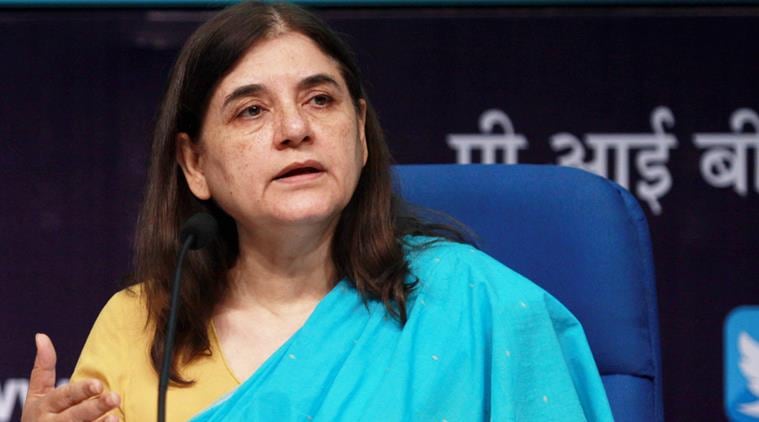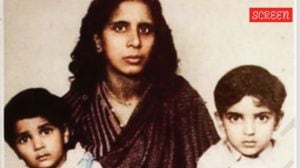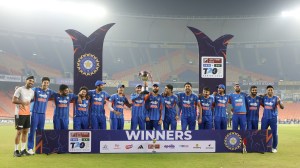Maneka’s suggestion to record gender of foetus and monitor births: Is it really feasible?
Gynecologists The Indian Express spoke to said that seeing how over-crowded government hospital OPDs already were, this “idea”, seemed like a Utopian concept.
 Women and Child Development Minister Maneka Gandhi.
Women and Child Development Minister Maneka Gandhi.
Union Minister for Women and Child Development Maneka Gandhi’s statement in Jaipur, Monday, that there was a proposal under consideration to record the gender of every foetus and to track the pregnancy till delivery time, has generated widespread debate. By Tuesday afternoon, the WCD ministry issued a statement saying that this was only an alternative route suggested by some “stakeholders”.
The ethical concerns notwithstanding, is it feasible to register the sex of every foetus in India? In a country with over 50,000 births every day, how do you generate the resources to first compile the data on every foetus and then build a strong enough monitoring mechanism to ensure pregnancies of female foetuses, in particular, are followed through?
[related-post]
Gynaecologists The Indian Express spoke to said that seeing how over-crowded government hospital OPDs already were, this “idea”, seemed like a Utopian concept. “Where do doctors have the time? We can barely give five minutes to a patient…this will put additional burden on gynaecologists, the waiting time in government hospital OPDs would increase the already serpentine queues ,” a doctor said.
Also, given the problems already faced in monitoring radiologists under the existing PCPNDT Act, how would monitoring thousands of pregnancies across India, be any easier? Doctors also said the proposal may “deny the existence” of thousands of home births too. Families are still reluctant to visit hospitals for deliveries; to expect them to be responsible enough to visit a hospital to record the foetus of their child seems improbable, said another doctor.
Another aspect is the poor maintenance of equipment, like ultrasound machines, needed to detect the foetus of the child and the fact that patients tend to go to private clinics. “How will data on gender be taken from private clinics? How do you verify the authenticity of their tests? I do not know if we can rely on the multiple clinics flourishing in private hospitals for the gender of the child,” said the head of gynecology at a South Delhi central government hospital.
The biggest hurdle, according to experts is that a mechanism of monitoring, assumes that once parents are aware of the gender of their foetus, they will actually be motivated to carry forward the pregnancy if the child is female. Maneka Gandhi said in Jaipur that knowing the gender of their child may help compel people carry through pregnancies, especially for female foetuses.
Experts feel this assumption of responsibility first relies on shaming or scaring people into giving birth to girls. Doctors say scores of medical terminations in pregnancies of female children are prevented because people do not know the gender of their child. Even then many a girl child is killed within the first five years of birth, so the knowledge that you have given birth to a female child does not mean the child will be allowed to live.
However, there is a feeling that the proposal could serve to inhibit female foeticide. That a day after Maneka’s statement, the union health ministry issued multiple ads in national dailies on the PCPNDT Act is perhaps sign enough that for now the existing practice of monitoring will remain.
- 01
- 02
- 03
- 04
- 05






































